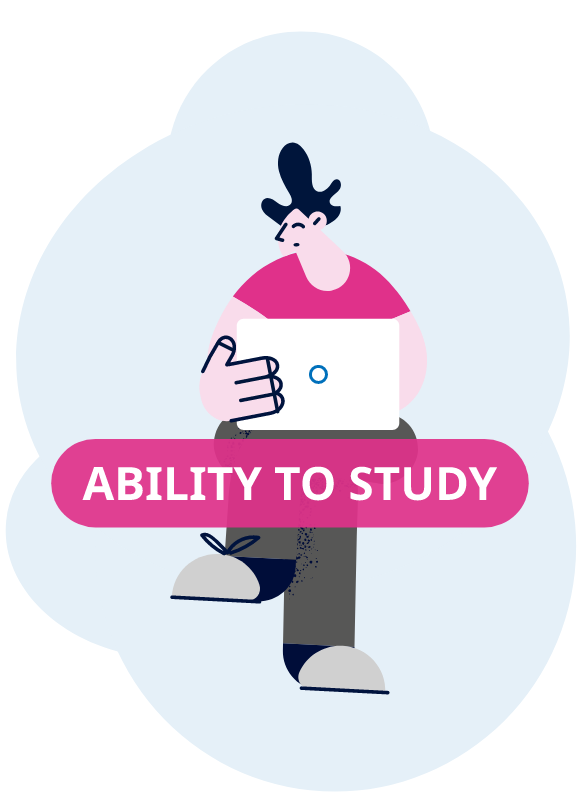The model for ability to study created by the FSHS and the Finnish Institute of Occupational Health describes a variety of factors affecting students’ ability to study and how the different parties in higher education communities can promote it.
The model for ability to study is based on the work ability model and was first published in a student health guide in 2006. This year the ability to study model has been updated led by the FSHS. The purpose remains the same but the concepts have been updated to meet current needs.
The new model can be used by both individuals and communities.
“It helps to understand the many factors affecting ability to study and can be used as a tool in supporting student healthcare together with study communities”, says Priska Pennanen, psychologist in charge of study community work at the FSHS.
Essential tool for higher education communities
The Covid-19 pandemic has highlighted the role of the entire study community in supporting ability to study. The main message of the ability to study model is that ability to study evolves in a dynamic interaction between a student’s personal resources and study skills and the study environment and high-quality teaching and counselling.
The members of the working group in charge of the update regard the model as an important tool.
Viivi Virtanen, Principal Research Lecturer at the Häme University of Applied Sciences (HAMK), says that higher education teachers often ponder how to support students’ ability to study. Virtanen believes that the model for ability to study provides a sound basis for joint discussions regarding the role of teachers, management and students themselves in supporting ability to study in higher education.
The model also explains what should be taken into account when supporting the ability to study of those with mental health problems.
“It provides a tool for study psychologists in higher education to communicate about factors related to study problems and how to address them”, says Mikko Inkinen, Study psychologist and immediate superior for psychologists at Aalto University.
Ninni Kuparinen, Wellbeing policy advisor at the National Union of Students in Finnish Universities of Applied Sciences (SAMOK), uses the model at student union training events and when lobbying the Ministry of Social Affairs and Health or universities of applied sciences for support services in higher education.
“The model presents a wide variety of factors that can be influenced to promote ability to study”, Kuparinen says.
The FSHS hopes that the newly updated model will be utilized widely in different contexts for promoting and supporting ability to study.
Institutions of higher education and student organisations were strongly represented on the working group in charge of the update. The founder of the model for ability to study, FSHS’s long-time Medical Director and Senior Researcher Kristina Kunttu, was one of the members, and there were also representatives from Nyyti ry and the KYKY project conducted between 2011 and 2014.
These organizations were represented in the working group
- FSHS
- Aalto University
- National Union of Students in Finnish Universities of Applied Sciences (SAMOK)
- National Union of University Students in Finland (SYL)
- University of Helsinki
- University of Turku
- Häme University of Applied Sciences (HAMK), EDU Research Unit
- University of Jyväskylä
- Research center for psychology, University of Oulu
- Nyyti ry
- Mieli Mental Health Finland

